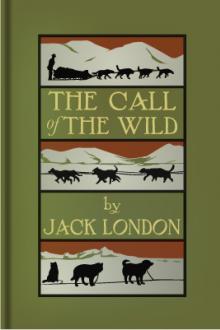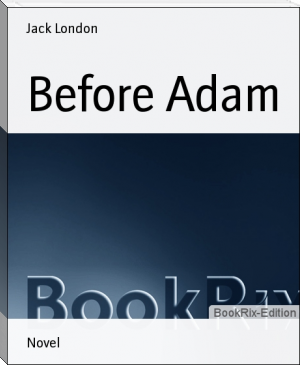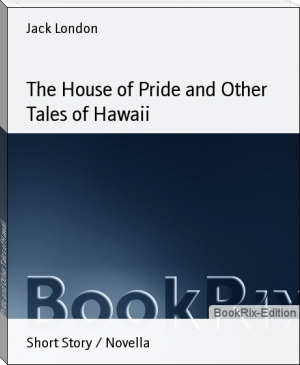author - "Jack London"

angry. But his strength ebbed, his eyesglazed, and he knew nothing when the train was flagged and the twomen threw him into the baggage car.
The next he knew, he was dimly aware that his tongue was hurtingand that he was being jolted along in some kind of a conveyance.The hoarse shriek of a locomotive whistling a crossing told himwhere he was. He had travelled too often with the Judge not toknow the sensation of riding in a baggage car. He opened hiseyes, and into them came the unbridled anger of a kidnapped king.The man sprang for his throat, but Buck was too quick for him.His jaws closed on the hand, nor did they relax till his senseswere choked out of him once more.
"Yep, has fits," the man said, hiding his mangled hand from thebaggageman, who had been attracted by the sounds of struggle."I'm takin' 'm up for the boss to 'Frisco. A crack dog-doctorthere thinks that he can cure 'm."
Concerning that night's ride, the man spoke most eloquently forhimself, in a l

Description
A collection of stories that highlight the trials and tribulations of life in the Yukon and Alaska during the gold rush. Greed, determination, compassion, competition, and survival dominate as native tribes intermingle with western settlers. Despite the laws that each culture abides by, the law of the wilderness will overcome you when unprepared.

Description
Released in 1911, When God Laughs, and Other Stories is the eleventh collection of short stories by Jack London. In contrast with most of his other work that had been released at the time, When God Laughs is set in Polynesia. The book consists of twelve short stories that range from humorous to shocking.

Description
The Iron Heel is some of the earliest dystopian fiction of the 20th century. The novel is framed as a presentation of the long-lost “Everhard Manuscript,” a document written by the socialist revolutionary Avis Everhard around 1932. The manuscript is discovered in the year 2600, and is introduced and annotated by a far-future commentator.
In it, Avis tells of how the United States was slowly overcome by a group of oligarchs, the Iron Heel, who use their monopoly power to systematically bankrupt American small businesses and farmers in order to cement their control over the capitalist system. Eventually, the U.S. Army is brought under the control of the oligarchs, who entrench a brutal system of repression against the working class. Everhard, her husband, and a scrappy group of socialists fight valiantly against the Iron Heel, though we learn in the foreword that they don’t survive the fight, and die as martyrs.
London uses the narrative as a vehicle for espousing his socialist views, sometimes to the detriment of the plot, and even going so far as to plagiarize an essay by Frank Harris nearly verbatim—issues which caused the work to earn scant critical praise. Despite this, it sold over 50,000 copies in hardcover and influenced a generation of activists, including George Orwell, Harry Bridges, and Frederic Tuten.

angry. But his strength ebbed, his eyesglazed, and he knew nothing when the train was flagged and the twomen threw him into the baggage car.
The next he knew, he was dimly aware that his tongue was hurtingand that he was being jolted along in some kind of a conveyance.The hoarse shriek of a locomotive whistling a crossing told himwhere he was. He had travelled too often with the Judge not toknow the sensation of riding in a baggage car. He opened hiseyes, and into them came the unbridled anger of a kidnapped king.The man sprang for his throat, but Buck was too quick for him.His jaws closed on the hand, nor did they relax till his senseswere choked out of him once more.
"Yep, has fits," the man said, hiding his mangled hand from thebaggageman, who had been attracted by the sounds of struggle."I'm takin' 'm up for the boss to 'Frisco. A crack dog-doctorthere thinks that he can cure 'm."
Concerning that night's ride, the man spoke most eloquently forhimself, in a l

Description
A collection of stories that highlight the trials and tribulations of life in the Yukon and Alaska during the gold rush. Greed, determination, compassion, competition, and survival dominate as native tribes intermingle with western settlers. Despite the laws that each culture abides by, the law of the wilderness will overcome you when unprepared.

Description
Released in 1911, When God Laughs, and Other Stories is the eleventh collection of short stories by Jack London. In contrast with most of his other work that had been released at the time, When God Laughs is set in Polynesia. The book consists of twelve short stories that range from humorous to shocking.

Description
The Iron Heel is some of the earliest dystopian fiction of the 20th century. The novel is framed as a presentation of the long-lost “Everhard Manuscript,” a document written by the socialist revolutionary Avis Everhard around 1932. The manuscript is discovered in the year 2600, and is introduced and annotated by a far-future commentator.
In it, Avis tells of how the United States was slowly overcome by a group of oligarchs, the Iron Heel, who use their monopoly power to systematically bankrupt American small businesses and farmers in order to cement their control over the capitalist system. Eventually, the U.S. Army is brought under the control of the oligarchs, who entrench a brutal system of repression against the working class. Everhard, her husband, and a scrappy group of socialists fight valiantly against the Iron Heel, though we learn in the foreword that they don’t survive the fight, and die as martyrs.
London uses the narrative as a vehicle for espousing his socialist views, sometimes to the detriment of the plot, and even going so far as to plagiarize an essay by Frank Harris nearly verbatim—issues which caused the work to earn scant critical praise. Despite this, it sold over 50,000 copies in hardcover and influenced a generation of activists, including George Orwell, Harry Bridges, and Frederic Tuten.





